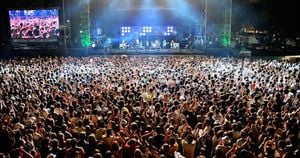Nadagye, known for his candid reflections on life, recently opened up about the life-changing experience of becoming a father at the age of 51. Surprising both himself and others, he never envisioned leading such a family-oriented life at this age. "ほんとに…?"ってすごく驚きました。自分が結婚すると思ってなかったし、この歳になって子どもを授かるなんて考えてなかったです。" This immediate reaction came when he learned of his wife's pregnancy, highlighting the shock and joy intertwined with this new chapter.
His daughter was born amid the COVID-19 pandemic, which complicated the situation even more. Nadagye was unable to be present at the birth, but when he finally met his little girl, he was taken aback by how tiny she was. "こんなに小さいんだ?"っていうのがファーストインプレッションですね。" Those moments of realization have been filled with both joy and challenges, as he navigates the emotional and physical demands of fatherhood.
Since his daughter turned one, she and his wife moved back to live with him. Nadagye now reflects on those early parenting days which he describes as "1人でこんなに大変なんやって毎日、嵐です。" It is apparent he juggles the stress of his work and home life, feeling the need to adapt to his daughter’s schedule, which has greatly altered his lifestyle.
But the surprises of parenthood weren't the only topic on Nadagye's mind. He also delved deep back to his school days where he faced significant challenges due to bullying. After experiencing intense hardships during middle school, he lost faith in education altogether, saying, "学校に対して希望がなくなったんですよね。" Instead of pursuing his academic goals, Nadagye followed the path of working, initially heading to work at a factory and later to culinary jobs, none of which fulfilled him.
This struggle extended for several years as he entered what many refer to as hikikomori, or social withdrawal. He vividly recalls the beginning of this time, feeling initially relieved at not engaging with others. "やった、何もしなくていい"と思ったのかな。 While those moments brought some joy through solitude, they quickly devolved, leading to complete detachment from life and struggles with fundamental needs such as eating. He noted how he felt distanced from reality, disassociated from himself.
Reflecting back, he mentioned the bullying he endured. It began with body-shaming and escalated rapidly, leaving deep emotional scars. "デブとか体型のことを言われはじめて、そこから徐々にエスカレートしていきました。" Often, these experiences left him feeling alone, and he had to navigate the torment without helpful interventions from those around him.
Despite these painful recollections, Nadagye's insight grows richer as he balances his past with the joys and tribulations of fatherhood. From being silenced by bullying to embracing the noisy chaos of diaper changes and playtime, his reflections serve as reminders of resilience. Every moment he spent as hikikomori, alone and battling his demons, shaped him for the current experience of fatherhood, making him value the moments much differently today.



